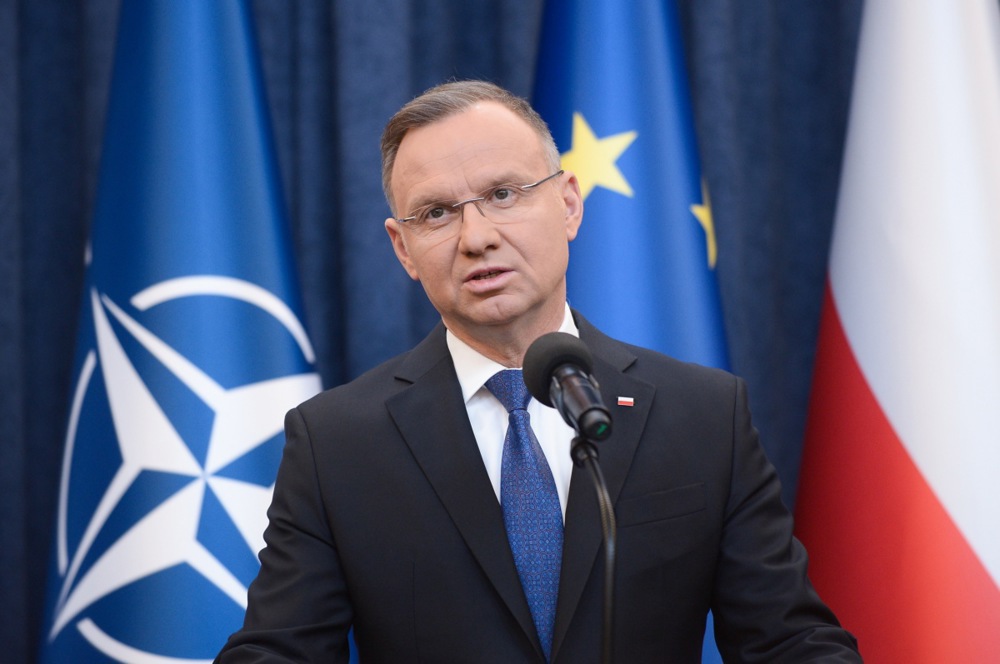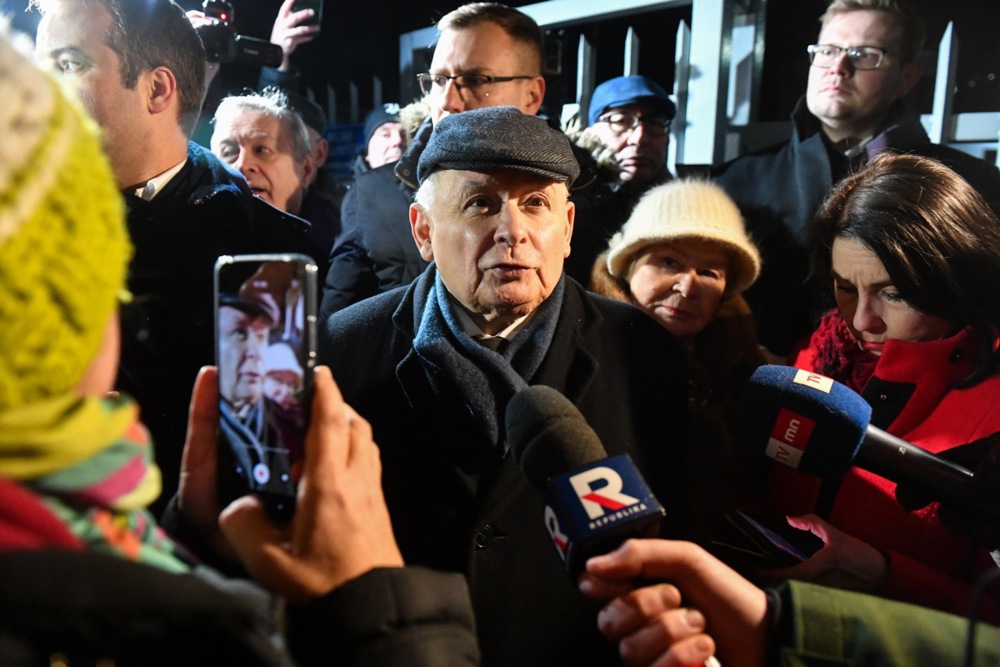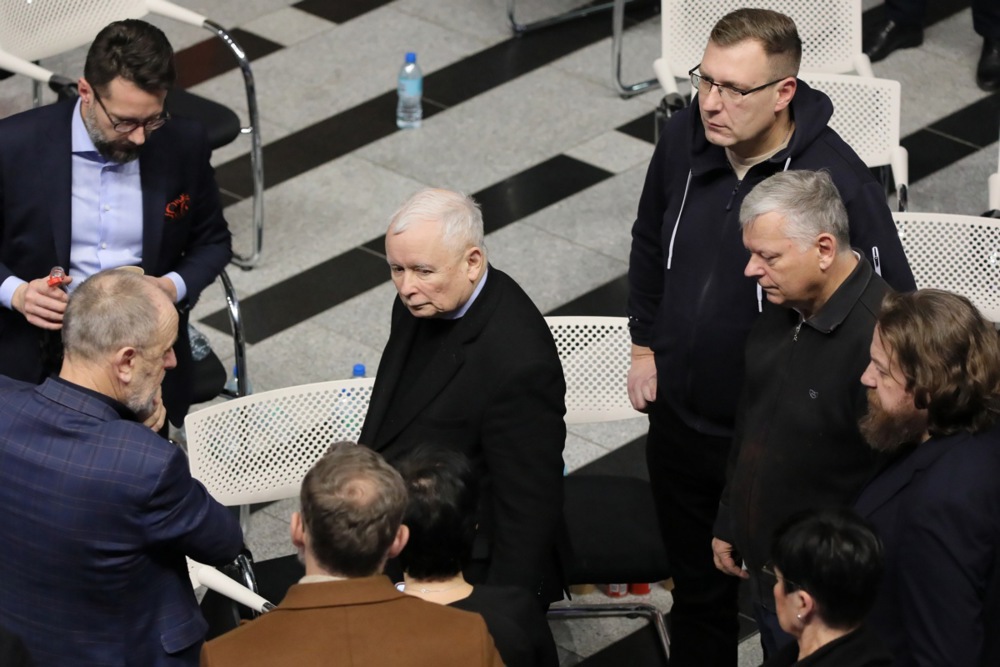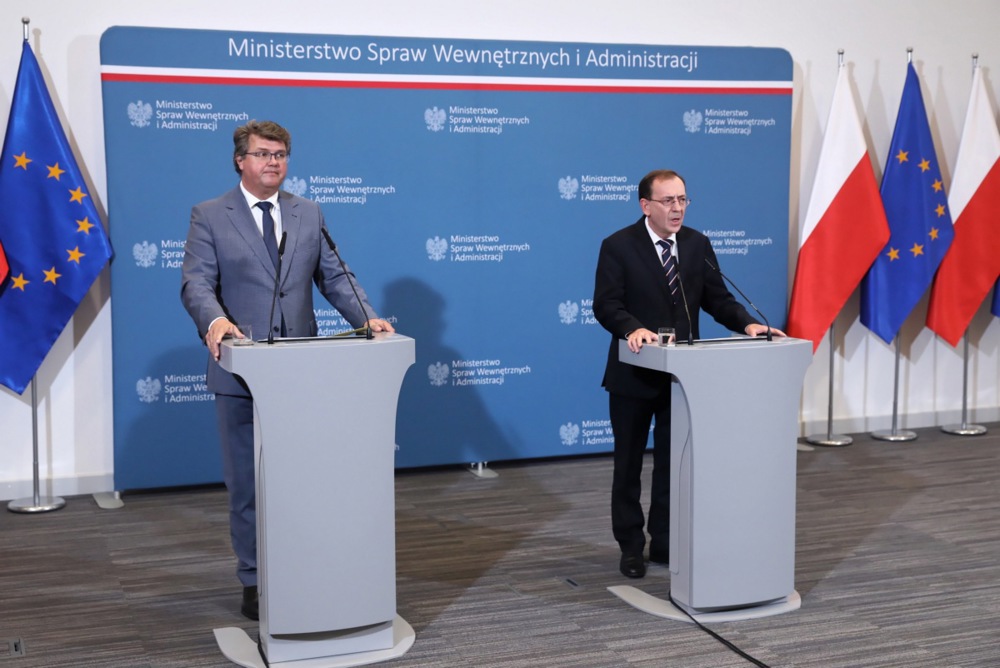A leading Polish newspaper has alleged a senior Warsaw police officer was asked to instigate electronic surveillance of the Presidential Palace in the hours leading up to the recent arrest and incarceration of two previously pardoned MPs.
Rzeczpospolita reported on January 13 that the police and the State Security Service (SOP), responsible for protecting State officials, wanted to monitor the Palace ahead of the arrest of Mariusz Kamiński and Maciej Wąsik.
Both MPs were being hosted by President Andrzej Duda and, according to the Polish news group, pressure was put on the deputy chief of Warsaw police Krzysztof Smela to allow the surveillance to be carried out.
Smela apparently refused to fold and, as a result, was taken off the case, subsequently “choosing” to take early retirement.
Police officials deny his retirement is linked to the alleged Palace events, stating Smela had filed to step down in November last year.
Duda was reported by Polish media to be “shocked at the behaviour” of the SOP, a body which is responsible for his personal protection, in that it apparently co-operated with a police action seemingly directed at him.
Prominent political scientist Andrzej Anusz has advised the President to request that his security in future be handled by the military police rather than the SOP, the country’s media also claimed.
The two MPs were seized after the police entered the Presidential Palace on January 10 and arrested them, placing them in prison to serve a two-year prison sentence over an alleged abuse of power regarding an “anti-corruption sting” several years ago.
The latest move came despite the fact that Duda had pardoned Kamiński and Wąsik for these alleged offences, in 2015.
A chamber of the Polish Supreme Court ruled recently that the pardon procedure was invalid as the two MPs’ appeals had not yet been heard by the courts. The case was returned to the appeals court, which upheld the original sentences and a warrant was issued for their arrest.
The two MPs have, as a result of their incarceration, had their parliamentary mandates revoked by the Speaker of Parliament Szymon Hołownia and have gone on hunger strike.
Their conservative PiS party colleagues have called them the “first political prisoners” since the end of Russian-implemented Communism in 1989.
Duda has now repeated his pardon of the pair, requesting justice minister Adam Bodnar to suspend their sentences pending completion of the pardon procedure. Thus far, Bodnar has not officially responded.
Relations between the President and the Government had deteriorated further after Bodnar dismissed the National Prosecutor Dariusz Barski on January 12, thereby contravening legislation that obliges a justice minister to consult with the Head of State, ie Duda, before making any such move.
Barski was “no longer the head of the National Prosecutor’s Office”, Bodnar announced, alleging that the previous minister of justice Zbigniew Ziobro had made a procedural “error” in appointing Barski in the first place.
Bodnar then installed Jacek Bilewicz as “acting National Prosecutor”, a post not recognised under Polish law, without consulting Duda – as is required.
Duda, who said such actions represented a “violation of law”, accused newly-installed Prime Minister Donald Tusk of plunging the country into “crisis” and ruling by “revenge”.
Former prime minister Beata Szydło took to X to slam the justice minister’s actions.
She wrote: “Bodnar during his attempt to take over the National Prosecutor’s Office was instructed about the illegal nature of his actions. He also admitted that the decision had been taken by Donald Tusk who, when asked about it by journalists, said that the action was Bodnar’s responsibility.
“They are both cowards who refuse to be accountable for their actions.”
In her X post, Szydło included what she described as something important regarding the situation, saying: “Every Pole should see this recording.”
https://twitter.com/BeataSzydlo/status/1746167166049644722
At the time of writing, Public prosecutors in the National Prosecutor’s office previously headed by Barski are reportedly protesting Bodnar’s move and have refused entry to the building of those not authorised to be there by their deposed chief.
Officials have also apparently written to the European Commission asking for intervention to protect what they call the “independence” of prosecutors in Poland.





